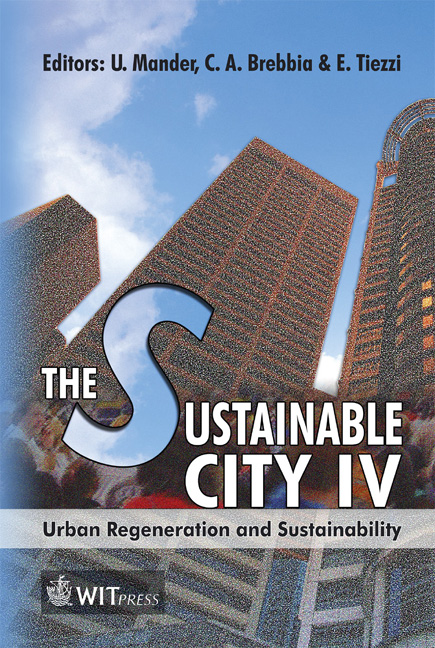Life Cycle Guarantors Of Sustainability
Price
Free (open access)
Transaction
Volume
93
Pages
9
Published
2006
Size
262 kb
Paper DOI
10.2495/SC060371
Copyright
WIT Press
Author(s)
R. Paluoja & S. Moore
Abstract
Sustainable cities rely on architects, engineers and urban planners, professions in the first tier of professional practitioners in the built environment. Few if any urban and building systems designed by them however are \“fit-and-forget”. They rely on a \“fit-and-manage” strategy. Potentially more significant for the longterm performance of these urban systems and individual buildings is the second tier of professions including technologists, technicians, and trades people. This latter group contributes ideas to the design professions, is employed in the construction or retrofit of these designs, and then operates and manages them over many generations. These second tier practitioners are often neglected or given little significance in the broader urban conversation about the future of our cities. They are an essential grouping however not only because of their crucial role in assuring the life cycle success of sustainable designs but as an important, homegrown employment resource for any community or country. The Seneca Sustainability Partnership, at one of Canada’s premier post-secondary institutions, is an advocate for this second tier of professions in ensuring that they are educated in the principles of applied urban sustainability. New training materials, consulting opportunities for technologists, research outreach and public participation are attuned to the role of this second tier. Keywords: green building, technologist, technician, trades, Brownfield, built environment, life cycle, urban sustainability, demand management, restoration. 1 Introduction The design of sustainable buildings and communities has entered the mainstream of discussions about the future of living places. Whether borrowing from past models, responding to opportunities for appropriate and cost effective technologies, or competing with alternative, market transformation, strategies for attaining a healthier world, sustainability can no longer be ignored.
Keywords
green building, technologist, technician, trades, Brownfield, built environment, life cycle, urban sustainability, demand management, restoration.





